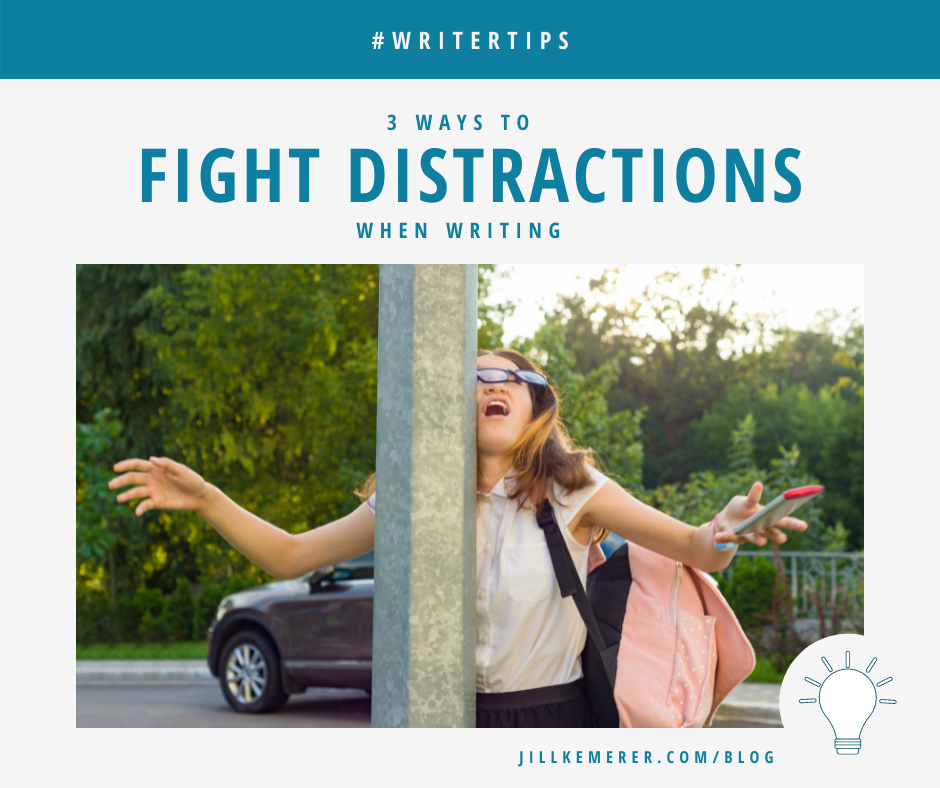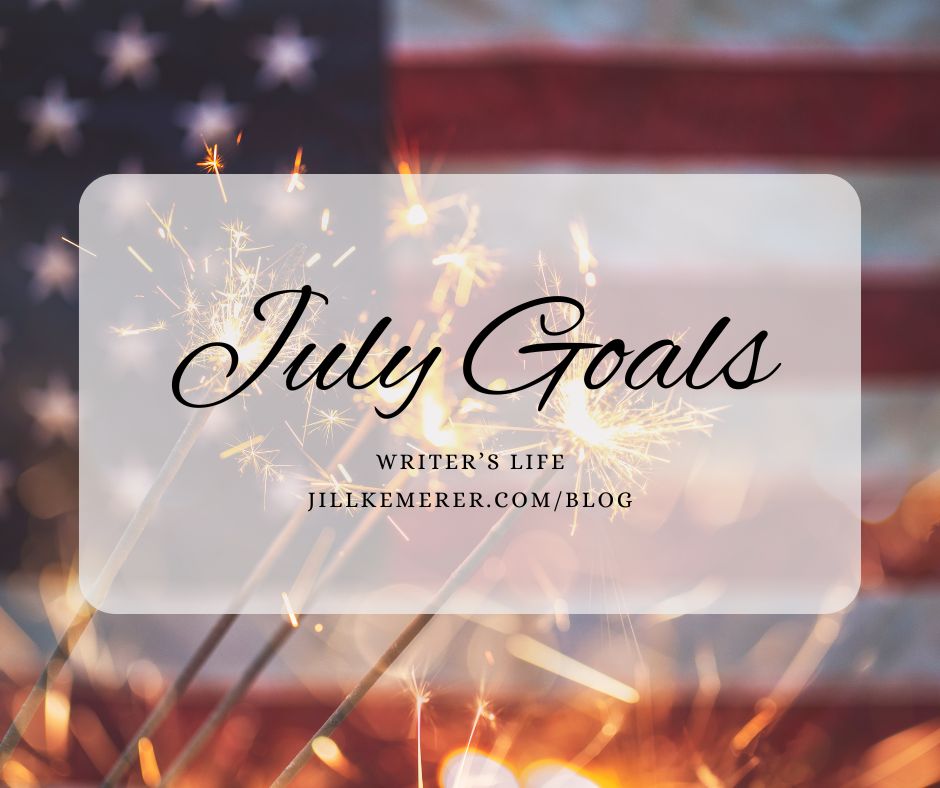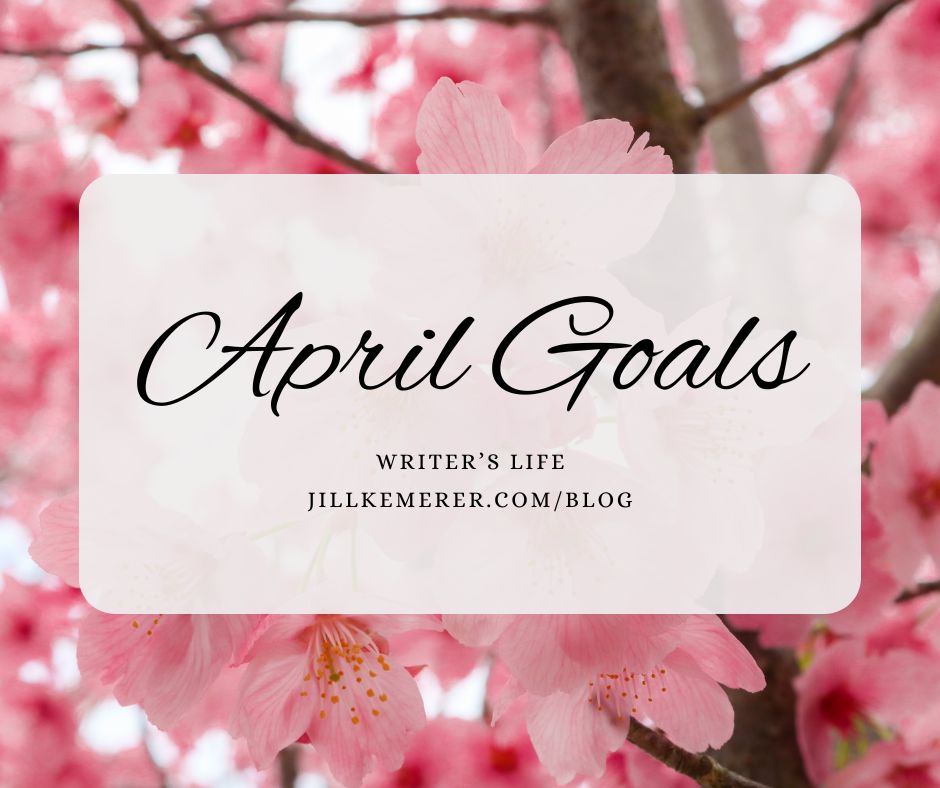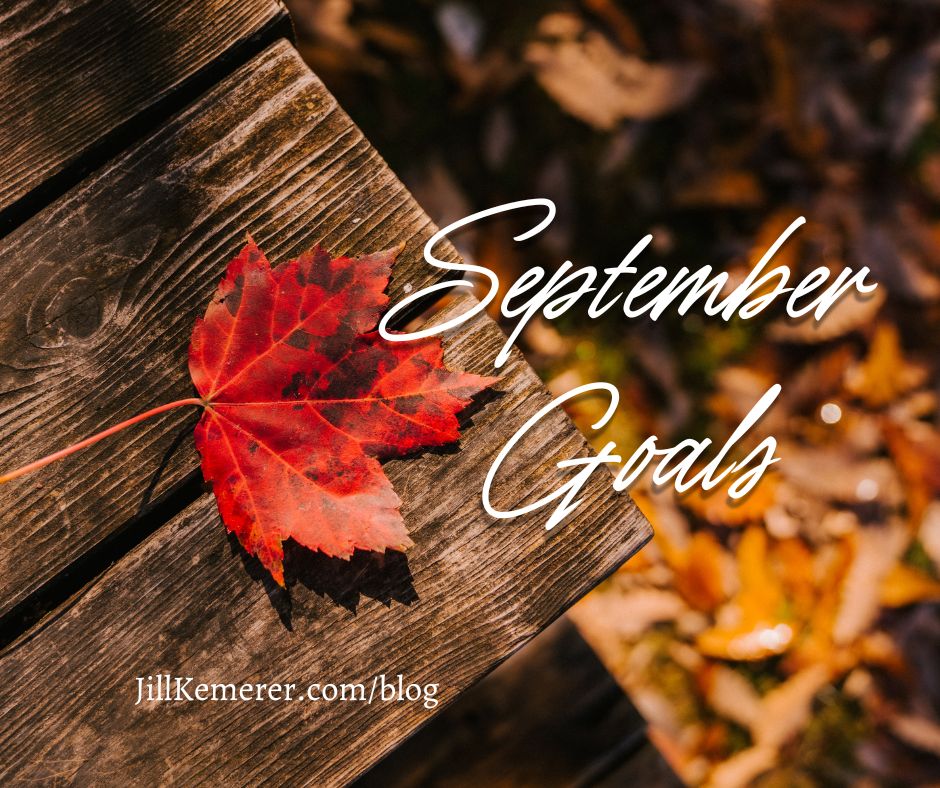My writer productivity skyrockets when I set monthly writer goals, and it’s time to share…
3 Ways to Avoid Distractions and Keep Writing
I’m currently writing the first draft of a new book. I’m working on one of those in-between chapters, and, needless to say, I’m distracted. How to fight distractions when writing?
Well, first let’s look at why I’m distracted.
I’ve reached a spot in the book where I’m not certain what will happen next or even what needs to happen. And instead of figuring it out, I avoid it.
I don’t even think I fight the distractions! Anything is better than the hard work of figuring out the best path forward with the plot.
The distractions may be in the form of checking emails, organizing my pen caddy, trotting downstairs for a piece of gum, checking my phone for messages, watching a YouTube video in the name of research.
I’ve been known to roll quarters instead of writing the next scene. Yes, it’s been years since I did it, but it still happened. Distractions are real.
If I want to get more than 148 words written for the day, I fight them.
I know what they’re all about, anyway. When I’m distracted, it’s a sure sign either I don’t know what to write next or the story is losing its way.
3 Ways to Avoid Distractions and Keep Writing
- Determine the scene essentials for the next scene. What does the viewpoint character want? Why does she want it? Why can’t she have it? When and where does this take place?
- Look ahead to the next major plot point. What needs to happen between the previous scene and the next plot point?
- Ask if things are too easy for the characters. Has the romantic conflict disappeared? Are both the hero and heroine still fighting for their story goals or have I made it too easy on them?
When I stop and do the above, I’m usually able to push through the desire to let every little thing distract me. It doesn’t always work, but it does enough for me to keep trying!





Your presentation for ACFW was amazing! There are times when distractions take me away from writing. Thank you for sharing tips and wisdom on how to stay on track. 🙂 I have a busy day of writing and am not going to let distractions get hold of me. 🙂
Thank you, Melissa!! I feel better knowing I’m not alone on this! Happy writing today!!
I am not a master at beating distractions. I have undiagnosed ADD, so that complicates the issue, actually. When I get distracted, I give myself 5-10 minutes to get up and do a few things that are not writing related (grab a snack, wash a couple of dishes, reorganize my tutoring folders for the afternoon’s work, etc.), and then I put on a wordless soundtrack to a movie I like and force myself to sort through the next scene and get words on the page. That mini-break usually helps me get refocused. The music helps me get in the zone, because I set a goal of getting 100 words, 500 words, or 2 pages (or whatever) written by the end of the CD. That’s anywhere from 45 to 75 minutes, depending on the CD. If I get in a good groove, then I let the CD replay or turn it off and keep working. Sometimes I end up having to change CDs a few times to find the right tunes for the scene before I’m able to get those words out, but they eventually happen most of the time. The times that they don’t even after trying all my tricks to beat the distractions? I call it a day and try again tomorrow. I have to be flexible like that, because my brain and the way it works are not always conducive to forcing the words out in a coherent way.
Fascinating! Thanks for sharing how you fight distractions. I think it’s cool you know that putting on a movie soundtrack will help you meet your writing goals. Awesome! And I agree–we have to be flexible and kind to ourselves when we’re having those tough writing days! Thanks for stopping by!
It took years of practice and experimentation to find that those soundtracks work. 🙂 It’s always great reading your articles, Jill. Happy writing!
Hi Jill, sorry I missed goal-setting this month, I was too busy meeting my goals.
This is going to sound awful, but when I’m distracted (and not on deadline), I often give in to it. Take a walk, do something else creative, browse in a bookstore. I know the kinds of things that recharge me, and after, I’m usually able to break through.
If it’s an irrevocable deadline set by someone else, I have to power through. Sometimes it helps to go off-site with the laptop.
I used to write in chunks, skipping around in the narrative to whatever worked for me at the time, and filling in the cracks later. My recent stories have been more complex, and I’m trying to be more of a linear writer.
Thanks for sharing. Good to know how other writers cope.
Kathy Bailey
Yay, you met your goals! Good job!!
I don’t think of walking as giving in, because a lot of time that’s what jogs my brain into the right direction. 🙂
Thanks for sharing!!